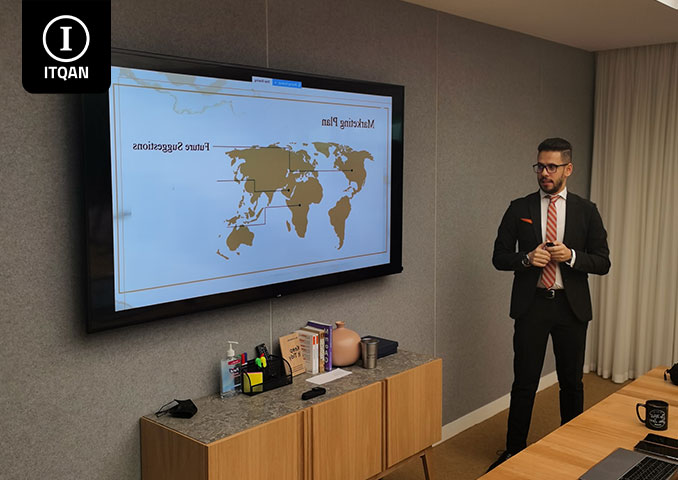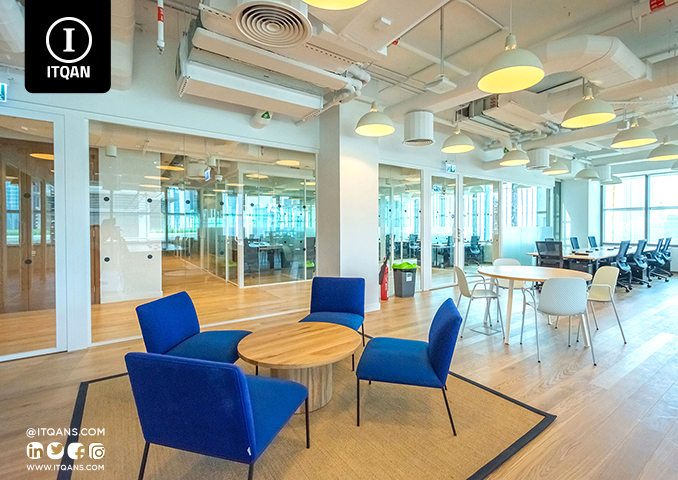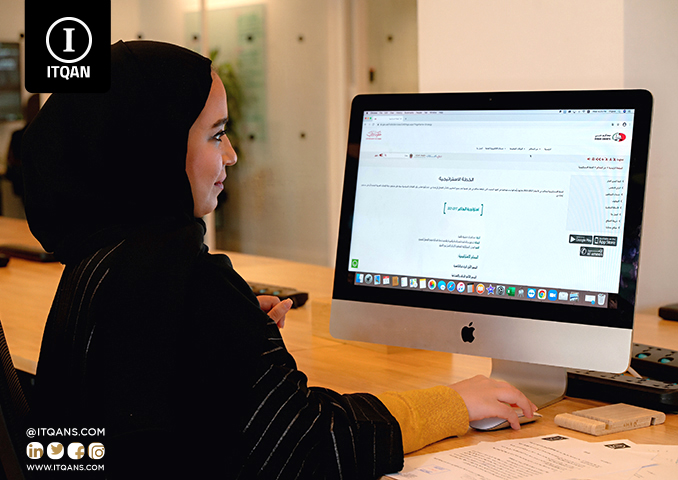Opening a commercial register in the Emirates. Opening a commercial register in the Emirates is an essential step for anyone who wants to start a business or develop an existing project. The UAE is characterized by a promising investment environment, as the government provides many facilities and benefits to attract investors and entrepreneurs from different parts of the world. Whether you are an individual aspiring to start a small business or a company seeking to expand its activity, opening a commercial register is the first step towards achieving your business goals.
In this article, opening a commercial register in the Emirates, we will comprehensively review the procedures and requirements related to opening a commercial register in the Emirates. We will discuss the conditions for opening the commercial register for individuals and companies, and clarify the required documents, in addition to the steps necessary to submit the application and follow up until obtaining final approval. We will also discuss expected costs, including government and additional fees and consulting fees.
Our goal is to provide a detailed guide that helps you understand the process of opening a commercial register in all its aspects, enabling you to take the right steps with confidence and ease. If you are thinking about investing in the booming UAE market, this article will be your basic reference for achieving this.

Opening a commercial register in the Emirates
جدول المحتوى
ToggleConditions for opening a commercial register
The conditions for opening a commercial register in the UAE vary based on the type of business activity and the nature of the applicant’s legal entity. In this section, we will review the main conditions and requirements that must be met by both individuals and companies, in addition to the required documents.
Individual requirements
Individuals wishing to open a commercial register in the Emirates must meet a set of conditions that guarantee the legitimacy and stability of the commercial activity. These requirements include:
- Nationality and Residency: The applicant must have Emirati citizenship or possess a valid residency in the country.
- Age: Applicant must be 21 years or older.
- Business activity: The business activity must be specified precisely, as conditions and procedures vary based on the type of activity.
- Business headquarters: The applicant must have a specific and verified business address.
- Capital: Individuals are required to provide a statement of the capital allocated to the business.
Corporate requirements
For companies, conditions are slightly different than for individuals and include:
- Legal establishment: The company must be a legal institution and registered in the Emirates.
- Partners and shareholders: A list of the names of partners and shareholders and the percentages of their shares must be provided.
- Management and organization: There should be a clear administrative structure for the company.
- Commercial address: An actual commercial headquarters must be provided for the company.
- Capital: A statement of the capital allocated to the company must be submitted.
Required Documents
Whether for individuals or companies, there are a set of basic documents that must be submitted to open the commercial register. These documents include:
- Registration application form: The commercial registration application form must be filled out accurately and submitted to the competent authority.
- Copy of Passport: A copy of the passport and residence permit (if applicable) must be provided for individual applicants.
- Company Articles of Association: For companies, a copy of the company’s Articles of Association and Articles of Association must be submitted.
- No-objection certificate: Some entities may request the submission of a no-objection certificate from the sponsor or current employer.
- Proof of address: Documents proving the business address such as a lease or property ownership must be submitted.
- Additional licenses: In some commercial activities, additional licenses may be required from the relevant government authorities.
By providing these conditions and documents, applicants can begin the process of opening a commercial register in the Emirates with complete ease, which contributes to achieving economic growth and engaging in the local commercial market.
Steps necessary to open a commercial register
Opening a company in the UAE requires following a series of structured steps aimed at facilitating the process and ensuring compliance with all legal requirements. Individuals and companies can choose between electronic registration or direct submission at the offices of the relevant authorities. In this section, we will review these steps in detail.
Electronic registration
- Accessing the official website: The applicant must visit the website of the Department of Economic Development in the relevant emirate.
- Create a user account: Register for a new user account if you do not have one previously.
- Selecting a business activity: Determine the type of business activity you wish to engage in from among the available activities.
- Submitting the electronic application: Fill out the electronic form with the required information such as owner information, company information, and the type of license required.
- Uploading documents: Uploading the required documents such as a copy of the passport, rental contract, and other supporting documents.
- Payment of fees: Complete the electronic payment process for the required fees.
- Receiving the license: After reviewing and approving the application, the license is issued electronically and can be printed.
Direct submission
- Visit the Department of Economic Development: Go to the nearest office of the Department of Economic Development in the emirate in which you wish to open the commercial register.
- Fill out the paper form: Obtain the commercial registry application form and fill out all the required data.
- Submitting documents: Submit all required documents in paper form, such as passport, rental contract, and others.
- Payment of fees: Pay the prescribed fees directly at the relevant office.
- Receiving the license: After reviewing and approving the application, the license is issued and can be collected in person.
Follow-up and approval
- Follow up on the application status: The application status can be followed through the website of the Department of Economic Development or by contacting the relevant office.
- Amendments, if any: If there are any deficiencies or required amendments, the applicant will be notified to provide additional documents or information.
- Obtaining final approval: After completing all requirements, final approval of the commercial register is issued.
- Receiving the license: The license can be received either via email or by visiting the relevant office.
By carefully following these steps, individuals and companies can open a commercial register in the Emirates easily and conveniently, which contributes to starting their commercial activity legally and orderly.

Costs of opening a commercial register
Costs of opening a commercial register
Opening a commercial register in the Emirates requires taking into account a set of costs that individuals and companies must bear to ensure the process runs smoothly and obtain the necessary approvals. These costs vary based on the type of business and location, and include government fees, surcharges, and consulting fees.
Government fees
Government fees are the basic fees imposed by various government agencies when submitting an application to open a commercial register. These fees include:
- Commercial registration fees: imposed by the Department of Economic Development in the relevant emirate, and its value varies according to the type of commercial activity and the structure of the company.
- Licensing fees: Includes business license fees and commercial license issuance fees.
- Membership fees in the Chamber of Commerce: Joining the Chamber of Commerce requires paying annual membership fees that vary depending on the emirate and the type of business activity.
- Advertising fees: Some entities may charge additional fees to publish advertisements about company incorporation in local newspapers as part of the legal process.
Additional fees
In addition to government fees, there are additional fees that companies may incur based on their specific needs and requirements:
- Insurance fees: such as insurance for facilities and workers, which is considered a basic requirement in some commercial activities.
- Rental fees: The cost of renting a company headquarters, which varies depending on the size and location of the office.
- Service fees: These include municipal service fees and cleaning and maintenance fees that may be imposed by some municipalities.
Consultation fees
Companies may need to engage legal and financial experts or advisors to guide them through the process of opening a commercial register and ensure compliance with all legal and administrative requirements. Consulting fees include:
- Lawyers’ fees: providing legal advice and preparing contracts and agreements.
- Financial advisor fees: Providing financial and accounting advice, and assistance in preparing financial plans and required reports.
- Management consulting fees: Providing consulting services in the field of management and preparing business and marketing plans.
Knowing the various costs of opening a commercial register in the UAE can help individuals and companies plan well financially and ensure that resources are allocated appropriately to achieve commercial success.
Commercial registration in the Emirates
In conclusion, opening a commercial register in the UAE is a vital step to enable individuals and companies to carry out commercial activities legally and in an organized manner. It is important to follow the specified conditions and submit the required documents to ensure that the process goes smoothly and without obstacles. Through the options available, whether through electronic registration or direct application, entrepreneurs can choose the method that best suits them, making it easier to start their business.
In addition, applicants should be aware of the costs associated with opening a commercial register, including government fees, surcharges, and consulting fees. Understanding these costs will help with good financial planning and avoid unexpected surprises.
In conclusion, opening a commercial register in the UAE is a first step towards achieving commercial success and benefiting from the thriving investment environment in the country. It is important to adhere to procedures and requirements to ensure compliance with local laws and regulations, which contributes to the growth and sustainability of your business.
Frequently asked questions about a commercial register in the Emirates
What are the basic steps to open a commercial register in the UAE?
Basic steps include: Defining the business. Choosing the legal form of the company. Choose a trade name.
What are the documents required to open a commercial register in the UAE?
Documents vary depending on the type of activity and legal form, but usually include: the passport and Emirates ID of the company owner and partners. Articles of incorporation (if any). Notarized lease contract. Approved trade name.
How much does it cost to open a commercial register in the UAE?
Costs vary based on the type of activity, company size, and location. Costs include registration fees, licensing fees, and approvals and permit fees.
Can foreigners open a commercial register in the Emirates?
Yes, foreigners can open a commercial register in the Emirates, whether in the free zones or in the mainland regions. Some activities may require a local partner.
What are the commercial activities available to open a commercial register in the Emirates?
A wide range of business activities are available, including trade, industry, services, consulting, and others. A list of permitted activities can be obtained from the Department of Economic Development in the relevant emirate.
Do I have to have a local partner to open a commercial register in the UAE?
In mainland areas, some activities may require a 51% local partner. In free zones, foreigners can own the entire company 100%.

















